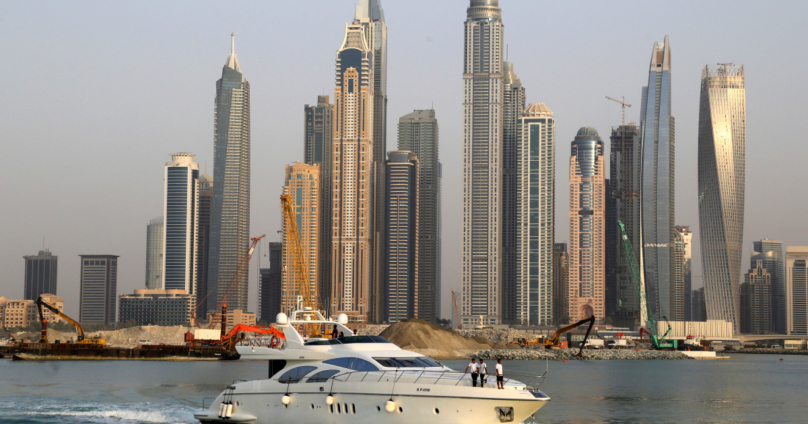The United Arab Emirates (UAE) announced it is opening a path to citizenship for select foreigners, but it is unclear if new passport holders will benefit from the public welfare system.
Dubai ruler and UAE Prime Minister Sheikh Mohammed bin Rashed Al Maktoum on Saturday said “investors, specialised talents and professionals including scientists, doctors, engineers, artists, authors and their families” would be eligible for naturalisation under the new amendment to the citizenship law.
“The UAE cabinet, local emiri courts and executive councils will nominate those eligible for the citizenship under clear criteria set for each category,” he said. “The law allows receivers of the UAE passport to keep their existing citizenship.”
The UAE government said the amendment “aims at appreciating the talents and competencies present in the UAE and attracting more bright minds to the Emirati community”.
Citizens make up a small minority of the nine million-strong population of the UAE, which has a huge migrant labour force, largely from South Asia, some of whom are second or third generation residents.
UAE’s visa system
Foreigners in the UAE usually have renewable visas valid for only a few years tied to employment.
The government in recent has made its visa policy more flexible, offering longer residencies for certain types of investors, students and professionals.
Last year, the government extended its “golden” visa system – which grants 10-year residency in the Gulf state – to certain professionals, specialised degree holders and others.
The UAE also has a growing community of wealthy expats attracted by the low-tax regime and the luxury megaprojects and tourist attractions of the larger emirates.
The Emirates has long guaranteed its 1.4 million citizens a high standard of living through reserved jobs and a cradle to grave welfare system. To protect it, they have seldom allowed naturalisations.
It was unclear if new passport holders would benefit from the public welfare system. The UAE spends billions of dollars each year on free education, healthcare, housing loans and grants for its citizens.
In November, the UAE announced plans to overhaul of the country’s Islamic personal laws, allowing unmarried couples to cohabitate, loosening alcohol restrictions and criminalising so-called “honour killings”.
Latest Stories
-
We expect significant reduction in prices of petroleum products in coming weeks – CEO AOMC
3 mins -
Betway Africa offers once-in-a-lifetime ‘Play-on-the-Pitch’ experience at Emirates Stadium
12 mins -
I coined the term ‘hype man’ in Ghana – Merqury Quaye
18 mins -
Vasseur questions ‘strange momentum’ of Formula One race director change
40 mins -
“I am disappointed in Kojo Manuel” – Merqury Quaye on “no tie” comment
40 mins -
Nana Kwame Bediako; The beacon of unity
43 mins -
Western Region: NDC youth wing embarks on phase 2 of ‘retail campaign’
1 hour -
Action Chapel International holds annual Impact Convention in November
1 hour -
Jana Foundation urges young women to take up leadership roles
1 hour -
All set for Joy FM Prayer Summit for Peace 2024
1 hour -
Managing Prediabetes with the Help of a Dietitian
2 hours -
Joy FM listeners criticise Achiase Commanding Officer’s election comment
2 hours -
Legal Aid Commission employees threaten strike over poor working conditions
2 hours -
Ghana ranked 7th globally as biggest beneficiary of World Bank funding
2 hours -
IMF board to disburse $360m to Ghana in December after third review
2 hours

